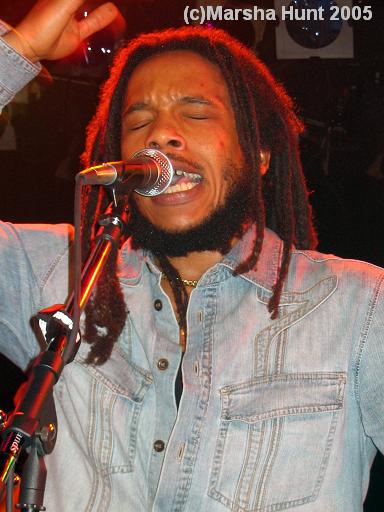Post by kaya on Sept 3, 2007 9:19:31 GMT -5
FACTBOX: Jamaica, land of Rasta and Reggae
Mon Sep 3, 2007 1:12AM EDT
Power. Price. Service. No Compromises.(Reuters) - Jamaicans vote for a new government on Monday in an election that will pit the Caribbean nation's first woman prime minister, Portia Simpson Miller, against a new opposition leader, Bruce Golding.
Following are five facts about Jamaica.
* Jamaica is perhaps best known around the world as the birthplace and spiritual home of Bob Marley, the reggae music icon who carried the Caribbean music around the globe. Marley was born on February 6, 1945, in St. Ann and became one of the world's most influential musicians with anthems like "Stir It Up" and "No Woman No Cry." He died on May 11, 1981, at age 36 but remains one of the best-selling reggae artists.
* Marley also was perhaps the world's most famous Rastafarian. Rastafari, a religion that emerged in Jamaica in the 1930s, considers marijuana a sacrament, Ethiopia its spiritual home and that country's former emperor, Haile Selassie, a divine figure. As many as 5 percent to 10 percent of Jamaicans identify themselves as Rastas.
* James Bond creator Ian Fleming bought land in Oracabessa on Jamaica's north coast after World War Two and built a house he called Goldeneye. He wrote 13 Bond novels in Jamaica. His retreat, on a bluff overlooking a cove, is now the Goldeneye Resort, built around the author's original three-bedroom home.
* Fleming's favorite coffee was reputed to be Jamaica's Blue Mountain variety, now one of the world's most expensive brews. Grown on small plantations in the Blue Mountains, the valuable bean with the bluish tint can bring $70 or more per pound and is highly prized in Japan. Hurricane Gilbert devastated Jamaica's coffee region in 1988.
* It was an earthquake, not a hurricane, that crushed Jamaica's 17th century pirate haven, Port Royal, once known as the wickedest city on Earth. Buccaneers like Henry Morgan made home port at the small town on a narrow spit of land south of Kingston, the current Jamaican capital. Bawdy houses, bars and gambling parlors catering to the pirates of the Spanish Main lined its streets. Most of the town disappeared under the sea in the massive quake in 1692. It is a quiet fishing village today.
(Sources: Reuters, www.bobmarley.com, Rastafarian Web sites)
Mon Sep 3, 2007 1:12AM EDT
Power. Price. Service. No Compromises.(Reuters) - Jamaicans vote for a new government on Monday in an election that will pit the Caribbean nation's first woman prime minister, Portia Simpson Miller, against a new opposition leader, Bruce Golding.
Following are five facts about Jamaica.
* Jamaica is perhaps best known around the world as the birthplace and spiritual home of Bob Marley, the reggae music icon who carried the Caribbean music around the globe. Marley was born on February 6, 1945, in St. Ann and became one of the world's most influential musicians with anthems like "Stir It Up" and "No Woman No Cry." He died on May 11, 1981, at age 36 but remains one of the best-selling reggae artists.
* Marley also was perhaps the world's most famous Rastafarian. Rastafari, a religion that emerged in Jamaica in the 1930s, considers marijuana a sacrament, Ethiopia its spiritual home and that country's former emperor, Haile Selassie, a divine figure. As many as 5 percent to 10 percent of Jamaicans identify themselves as Rastas.
* James Bond creator Ian Fleming bought land in Oracabessa on Jamaica's north coast after World War Two and built a house he called Goldeneye. He wrote 13 Bond novels in Jamaica. His retreat, on a bluff overlooking a cove, is now the Goldeneye Resort, built around the author's original three-bedroom home.
* Fleming's favorite coffee was reputed to be Jamaica's Blue Mountain variety, now one of the world's most expensive brews. Grown on small plantations in the Blue Mountains, the valuable bean with the bluish tint can bring $70 or more per pound and is highly prized in Japan. Hurricane Gilbert devastated Jamaica's coffee region in 1988.
* It was an earthquake, not a hurricane, that crushed Jamaica's 17th century pirate haven, Port Royal, once known as the wickedest city on Earth. Buccaneers like Henry Morgan made home port at the small town on a narrow spit of land south of Kingston, the current Jamaican capital. Bawdy houses, bars and gambling parlors catering to the pirates of the Spanish Main lined its streets. Most of the town disappeared under the sea in the massive quake in 1692. It is a quiet fishing village today.
(Sources: Reuters, www.bobmarley.com, Rastafarian Web sites)

